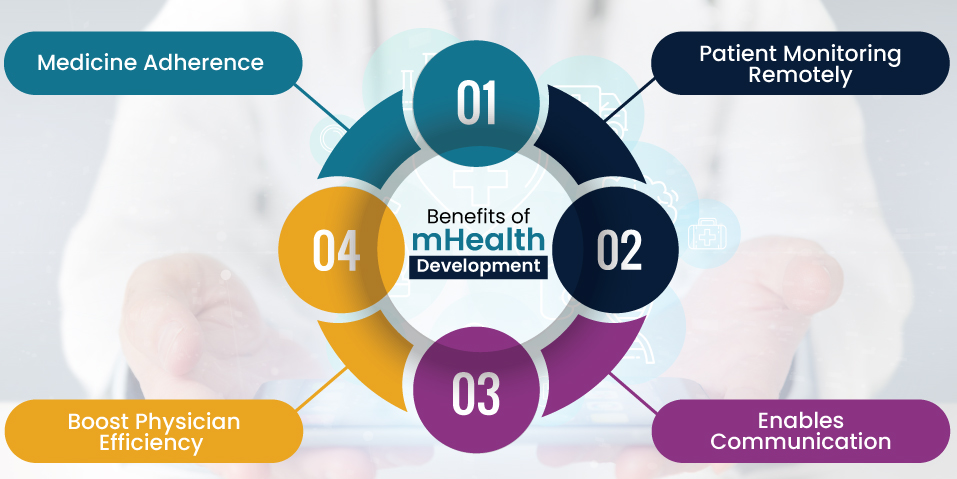Technology has transformed nearly every aspect of our lives, and healthcare is no exception. With the advent of mobile health (mHealth), individuals have the power to take charge of their health and well-being like never before. By leveraging the capabilities of smartphones, wearables, and other connected devices, mHealth offers a wealth of benefits that can help you stay fit and connected in your daily life.
Benefits of mHealth
Increased access to healthcare
mHealth bridges the gap between healthcare providers and patients, bringing care within reach regardless of geographical location or barriers. This means that individuals with limited access to healthcare facilities can still receive medical guidance and support. Remote consultations and telemedicine allow patients to connect with doctors and specialists virtually, saving time and effort typically required for in-person appointments.
Empowering patients for self-care
mHealth empowers individuals to take control of their health by providing tools and resources for self-care. With reminders for medication and appointment management, it becomes easier to stay on top of your healthcare routine. Mobile apps offer access to health resources and educational materials, enabling users to make informed decisions about their well-being. Whether it’s monitoring steps, sleep patterns, or managing chronic conditions, mHealth puts the power of self-care in your hands.
Enhanced patient engagement and communication
Real-time health monitoring and data tracking are made possible through mHealth solutions. With connected wearables and devices, individuals can track vital signs, chronic conditions, and fitness activities accurately. This allows for better engagement between patients and healthcare providers, as they have access to up-to-date and comprehensive health information. Remote consultations and telemedicine also improve communication, making it easier to seek medical advice and support when needed.
Key Applications of mHealth
mHealth applications enable seamless remote patient monitoring. Utilizing wearables and connected devices, individuals can collect and share data about their health. This data provides valuable insights to healthcare providers, enabling them to monitor chronic conditions, track vital signs, and evaluate fitness levels. The continuous monitoring made possible by mHealth ensures that healthcare professionals are equipped with real-time information for optimal decision-making.
Health information and resources
mHealth is a treasure trove of health information and resources. Mobile apps offer guidance for healthy lifestyle choices, diet management, and exercise programs. Individuals can access reliable medical information and research, helping them make informed decisions about their health. Having this wealth of knowledge at your fingertips ensures that you are equipped with the right information to maintain a healthy lifestyle.
Disease management and telemedicine
mHealth has revolutionized disease management through telemedicine. Remote consultations allow individuals to connect with healthcare professionals from the comfort of their own homes, eliminating the need for lengthy travel and reducing waiting times. This is particularly useful for individuals managing chronic diseases as they can receive ongoing support and advice without the need for frequent in-person appointments.
Innovations in mHealth
Artificial Intelligence (AI) and machine learning are transforming mHealth by providing personalized health insights and recommendations. AI-enabled platforms can analyze large datasets, detect patterns, and provide tailored recommendations for users. This personalized approach maximizes the effectiveness of interventions and promotes preventive care by identifying potential health hazards before they escalate.

Image courtesy of www.dreamsoft4u.com via Google Images
Blockchain technology for secure data management
Blockchain technology is being increasingly embraced in mHealth for secure data management. It offers enhanced privacy and security by ensuring that personal health information is protected and encrypted. Blockchain also simplifies data sharing between healthcare providers, enabling seamless collaboration and improving the overall quality of care.
Virtual reality (VR) and augmented reality (AR) in healthcare
Virtual reality (VR) and augmented reality (AR) are transforming healthcare education and therapy. VR simulations offer immersive learning experiences for medical professionals, allowing them to practice complex procedures in a safe environment. AR, on the other hand, can be used for pain management and therapy applications, providing distractions and enhancing the patient experience.
Challenges and Future Directions of mHealth
While mHealth brings numerous benefits, it also raises concerns regarding privacy and security. Safeguarding personal health information is of paramount importance, and regulations must be in place to ensure data protection. Healthcare providers and developers need to prioritize privacy and actively implement measures to address security concerns.
Ensuring equitable access for all
One of the challenges of mHealth is ensuring equitable access for all individuals. The digital divide can create disparities in the adoption and implementation of mHealth solutions, particularly for vulnerable populations and those in rural areas. Efforts must be made to bridge this divide and provide equal access to healthcare resources for all.
Integration and interoperability of mHealth solutions
In order to fully harness the potential of mHealth, it is crucial to establish seamless integration and interoperability among different mobile health applications. Collaborative efforts are required to develop standards and frameworks that enable effective data exchange and communication between various mHealth platforms.
Final Thoughts
mHealth is revolutionizing the way we approach healthcare, offering powerful tools and resources to individuals on their smartphones and connected devices. The benefits of mHealth, such as increased access to healthcare, patient empowerment, and enhanced communication, are transforming the healthcare landscape. The integration of innovative technologies like AI, blockchain, VR, and AR further expands the possibilities of mHealth. However, challenges remain, and efforts are needed to address privacy concerns, ensure equitable access, and promote interoperability. By recognizing the potential of mHealth and embracing its capabilities, healthcare providers, developers, and policymakers can drive the future of healthcare towards a more connected and inclusive era.



